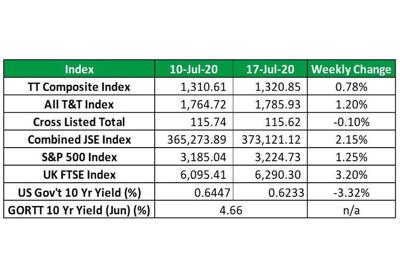Economic fallout
Strict and unprecedented measures were adopted by several governments around the world to curb the infection rate of the Covid-19 pandemic. As the coronavirus spread from country to country, authorities restricted travel and ultimately closed their borders, non-essential businesses were ordered to shut their operations and social distancing policies were implemented. While such measures significantly aided in keeping the virus at bay, it created severe economic consequences.
The global economy is projected to contract in 2020, with the International Monetary Fund (IMF) anticipating a decline of 4.9 per cent and the World Bank estimating a deeper contraction in economic activity of 5.2 per cent. Both international agencies agreed that the Covid-19 pandemic is the largest economic shock the world economy has experienced in decades.
Recessionary pressures are already emerging in several countries based on the economic performance for the first quarter of the year. The US economy contracted sharply by an annualised rate of 5 per cent in Q1 2020 after expanding by 2.1 per cent in Q4 2019 and is the first contraction since 2014 owing to the forced closures of businesses and consumers staying at home. The European Union’s statistics office Eurostat estimated that GDP of the 19 countries sharing the eurozone contracted 3.8 per cent quarter-on-quarter, led by France who recorded the deepest quarterly contraction of 5.8 per cent.
Regionally, a similar trend was also noted. The Jamaican economy is estimated to have contracted in the range of 1.5 per cent to 2.55 per cent in Q1 2020 while Barbados’ economy declined by 3 per cent over the same period owing to the measures implemented to contain the spread of the virus. Caribbean economies were also adversely affected as rising fears surrounding Covid-19 resulted in a myriad of visitors cancelling their travel plans in March as the infection rate soared. Tourism-dependent nations were left reeling as they effectively lost the last month of the winter tourism season. Domestically, Trinidad and Tobago’s economy is challenged on two fronts – the Covid-19 crisis along with low energy prices, with economic activity also expected to decline in Q1 2020.
Different scenarios
With the lockdown measures fully implemented during the period April and May for the majority of countries, it is expected that the contraction in Q2 2020 will be more severe when compared with Q1 2020.
However, with the lifting of the lockdown measures in early June, along with the fiscal and monetary support from governments and central banks, economic activity has already picked up in several countries. The resurgence of activity has sparked a debate on the shape of the recovery – with some possible outcomes including a V-shaped, U-shaped or a W-shaped rebound.
The best case scenario is a V-shaped recession — where there is an initial steep fall in economic activity, followed by a sharp rebound. The surge in activity will be propelled by pent-up demand as the population resumes normal activity after being locked-down for weeks. Consumption levels will be further supported by the fiscal measures provided by the government in response to the rise in unemployment due to the cessation of non-essential services. The monetary support by the central banks that resulted in a reduction in interest rates will also aid in boosting the demand for credit and by extension, overall expenditure levels. For this type of recovery to occur, the infection curve will need to remain flat so persons can safely go back to work and business activity returns to pre-Covid levels.
Another possible recovery is the U-shaped, where the economy takes many months to recover as the effects of the pandemic persist and some degree of social distancing remains for some time. Even if the infection rate is stabilised, this shape can still prevail if consumers and businesses are reluctant to return to their previous consumption and investment patterns.
In the W-shaped recovery – economic activity initially contracts, rebounds and then contracts again, the two declines create the shape of a W. This trend can ensue if new rounds of the virus emerge that result in the reintroduction of the restrictive policies and the shutting down of economies once again.
Barring a vaccine, all countries are still facing a new and unfamiliar future and there exists the possibility of a more prolonged Covid-19 outbreak. With the fear of a second wave ever present, economic activity may not return to pre-pandemic levels. Social distancing protocols may be the new norm and may curtail economic activity to some degree. The shape of the recovery will also depend on the behavioural patterns of consumers and investors who may be hesitant to resume life as it existed before the pandemic. As Covid-19 is still unfolding in many places in the world, it is still too early to unequivocally bet on any specific shape of the recovery.






